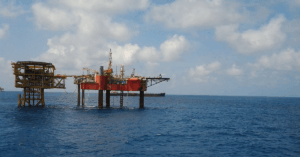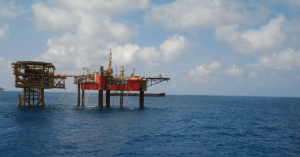
Bulk Carrier Crew Jailed Over Ireland’s Largest-Ever Maritime Drug Seizure
July 10, 2025
Engineer Charged With Murder Of 20-Year Old Stewardess Aboard Superyacht In Bahamas
July 11, 2025

A new natural gas discovery has been made south of Cyprus by ExxonMobil, an American oil and gas company, and its partner Qatar Energy.
The discovery was made at the Pegasus-1 well, located in Block 10 of Cyprus’ exclusive economic zone (EEZ). The well lies around 190 kilometers southwest of Cyprus, at a water depth of about 1,921 meters (6,302 feet).
According to the Cypriot government, the well encountered about 350 meters of gas-bearing reservoir. However, no estimate of the quantity of gas has been released yet. Further assessments will be carried out in the coming months to evaluate the full potential of the find.
This is the second discovery by the ExxonMobil-Qatar Energy consortium in Block 10. In 2019, the same partnership found gas at the Glaucus-1 well, which Cypriot officials estimate contains around 3.7 trillion cubic feet (tcf) of natural gas.
A follow-up well, Glaucus-2, also confirmed the presence of a high-quality gas-bearing formation in the same area.
The Pegasus-1 well is now the sixth confirmed natural gas deposit within Cyprus’ EEZ in the past 14 years. Other gas discoveries include Zeus, Cronos, and Calypso, located in Block 6, which is operated by a consortium of Italy’s Eni and France’s TotalEnergies.
The Cronos field is estimated to hold about 3.1 tcf of gas, while Zeus may contain 2.5 tcf. The Calypso field is still being assessed. The Eni-Total consortium currently holds exploration licenses for four blocks in Cyprus’ offshore zone.
The earliest discovery, made in Block 12, is the Aphrodite field, estimated to hold around 5.6 tcf of gas. It is being developed by a group made up of Chevron, NewMed Energy, and Shell.
Several development options are being explored to export this gas. Gas from the Cronos and Aphrodite fields is expected to be sent to Egypt via a pipeline, either for domestic use or for liquefaction at Egypt’s Damietta LNG plant before being exported to global markets.
Another approved plan involves using a Floating Liquefied Natural Gas (FLNG) facility at the Aphrodite site to process gas offshore.
Cyprus’ Energy Minister George Papanastasiou has also mentioned the possibility of ExxonMobil, Eni, and Total working together to develop their nearby discoveries jointly.
Despite these opportunities, several challenges remain. Turkey strongly opposes offshore drilling by the Cypriot government unless the Turkish-controlled Northern Cyprus receives a share of the benefits.
Turkey has also voiced opposition to any plans for a gas pipeline connecting Cyprus to Greece. A project for such a pipeline had U.S. backing initially, but Washington withdrew its support in January 2022, and the plan has since been on hold.
References: ekathimerini, AP News
Source: Maritime Shipping News


